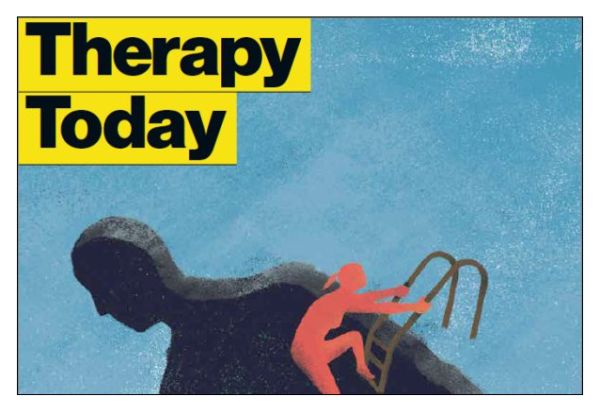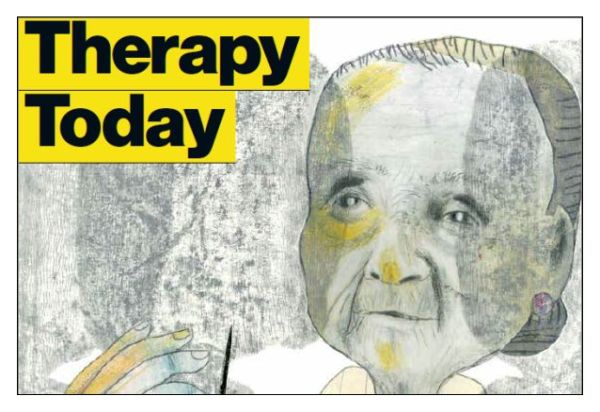Last month, contributors to a new book, The Future of Psychological Therapy, came together at a combined conference and launch at Regent’s University London to discuss the issues it raises. The aim of the book and conference was to review the state of counselling and psychotherapy today and how they might evolve.
The current situation, in the eyes of the speakers, is troubled and troubling. Counselling and psychotherapy are surviving, and even expanding in the UK, but only thanks to considerable state investment in the Improving Access to Psychological Therapies programme (IAPT) – and at a cost to their principles and to the values of their practitioners, conference speakers argued.
They described today’s health and social care provision across the UK as shaped, directed and driven by the strictures of evidence-based practice and managed care, which are themselves born of a neoliberal policy environment and the current Government’s ‘austerity’ drive. Alongside are cultural factors that chime with this wider socio-political context – scientism, consumerism, materialism, the cult of the individual and ‘project self’. Can counselling and psychotherapy even be effective in this environment, given that the values these policies enact are so directly in conflict with their own?
John Nuttall, Professor of Integrative Psychotherapy at Regent’s University London, opened the conference with his own summary of these issues. He pointed to the contradiction in terms at the heart of the phrase ‘managed care’, when ‘management’ implies measurability, monitoring surveillance, hierarchy and regulation – all of which ‘detract from the concept of care’. For counsellors and psychotherapists, care is about ‘training and skills, but also empathy, solicitude, understanding, giving. What we give, you couldn’t possibly put a price on and the outcomes aren’t measurable in the form of GAD or PHQ scales,’ he said. But in a time of austerity, price is all; value is nothing: ‘What has managed care given us? Money – but I am not so sure it’s helped empathy and solicitude.’
Other speakers gave their own slant on the dilemmas and threats facing psychological therapy today. Inevitably, the discussion focused largely on IAPT and CBT. Del Loewenthal, Professor of Psychotherapy and Counselling at the University of Roehampton, highlighted the strange anomaly that, through IAPT, counselling and psychotherapy have achieved greater status and visibility in the healthcare landscape than ever before, and reached thousands more people across a much broader span of social diversity. But, he warned, when well over a million people (and rising) are receiving state-funded, state-approved therapy in a year, this raises very important questions about state control over the therapy delivered. One of his particular concerns is the growing spread of what he described as state surveillance of the counselling relationship, seen in the requirements on practitioners to report concerns about clients whom they suspect of being ‘radicalised’, or of presenting a threat to children and young people. ‘We have moved from being irrelevant to being an agent of the state,’ he warned.
Jay Watts, a clinical psychologist and psychotherapist, who was involved in the Newham pilot that formed the basis for today’s IAPT model, focused on how IAPT plays into society’s obsession with self improvement. ‘IAPT plays to the notion that the self is a project to be moulded, chipped away to make it attractive to the market. If you are anxious or depressed, it’s your responsibility to have therapy to excise those aspects of yourself that aren’t saleable.’ IAPT is, she said, ‘the ultimate self-fashioning project’.
Ian Simpson’s concern is the impact on practitioners and staff who are trying to deliver therapy in such an environment. He was previously Head of Psychotherapy Services at a major London teaching hospital, and is now in private practice, including offering reflective practice for staff teams. ‘If you don’t look after the people providing treatment, how do you expect them to contain the anxiety of the people coming to see them?’ he asked. ‘I’m finding it almost impossible to do reflective practice with teams now because of what is happening in their workplaces – there’s no time to think about the work, how it’s affecting you, or to do that together, because of cuts and austerity.’ He sees this happening in IAPT services too: ‘Psychotherapy used to be based on the notion that you had a relationship. You can’t do that in six weeks. It has to develop over time, and that has been devalued. This is a serious ethical and political issue that is affecting the whole of society, not just therapy.’
Andrew Samuels, former Chair of the UK Council for Psychotherapy and co-founder of Psychotherapists and Counsellors for Social Responsibility and the Alliance for Counselling and Psychotherapy, argued that the answer may not be a return to ‘real’ therapy – ‘relational, facilitative, deep, embodied, truth-seeking not problem-solving, ethical therapy’. Is it really better, he wondered? ‘If you dissect it, it very often accords with neoliberal values – the valorisation of the individual, independence and conventional patterns of relationship such as constancy and duration of time.’ Even the fabled ‘therapeutic alliance’ is questionable, he said. ‘Research shows it is where the client is on her trajectory of change that is more important in many ways in predicting outcome than the quality of the relationship. The idea of the active client in person-centred therapy and its parallel in psychotherapy is really important. But therapists don’t like to hear that the agent of change isn’t you, it’s the client. That whole notion that the therapist holds the key to the door needs urgent deconstruction and critique.’
Going forward
So how to go forward? For Nuttall, the solution is to synthesise the differing values and contradictions within the counselling/psychotherapy world. His experience, as Chair of the West London Centre for Counselling (WLCC), offers one model, he said. WLCC, an independent charity, has survived IAPT by going into partnership with it, providing high-intensity counselling while the local IAPT service delivers level 2 treatments and high intensity CBT. ‘For us, the key thing was to engage with IAPT, with the commissioners and the GPs. We have to improve our engagement, be more vociferous, be more forceful and assertive within IAPT and, hopefully, by doing that, we’ll achieve some kind of organic movement.’
Jay Watts isn’t so sure. For her, acceptance of ‘a few of the crumbs’ from the IAPT table in return for a greater choice of therapies is suspect, she said. But IAPT’s critics need to come up with an alternative that matches its ability to reach more people than psychotherapy has traditionally been able to serve, and that will require some very radical changes, she argued. ‘There is a real debate between less for more and more for less. Can we be rude about IAPT if we aren’t actively looking at ways to create more listening spaces for the masses? And that means looking at the capacities of other workers to do what we do but in ways that aren’t what we do.’ Might we have to accept that psychotherapy deals with the most severe, most difficult and ‘scary stuff’, and that different approaches, including CBT, might work as well if not better for many of the rest?
She too advocated building alliances, including with CBT practitioners, IAPT services and IAPT workers, who themselves are getting a raw deal, she pointed out. Psychotherapy also has to emerge from the ivory consulting room and get involved with the harsh realities of its clients’ lives, she said. ‘We have to stop digging in and link with wider social movements, rally with users and survivors. We are supposed to be good listeners but are we really doing it? We might earn less money but we would be doing more for the common good.’
Del Loewenthal similarly talked of his work with disenfranchised communities, and in prisons in particular; of the need to ‘balance individualism with altruism and the common good’, but also ‘be wary of state interventions that threaten the pluralism of our approaches’. He urged the counselling and psychotherapy profession to take a stand against state interference in the counselling relationship. ‘Psy organisations need to make it very clear that there has to be a recognition of our professional judgment in the therapy space. We need to be on the edges of society, and to have confidence in ourselves and our training.’
John Lees, Senior Lecturer in Mental Health at the University of Leeds and editor of The Future of Psychological Therapies, is concerned about the future of clinical research – the food that nourishes the development of psychotherapy. Managed care is built on evidence-based practice evaluation research and ‘the problem with evaluation is that it can’t create anything new; it can only evaluate what already exists,’ he pointed out. The result is stasis and stagnation. He hopes to see the further development of innovatory clinical research, as in case studies, in order to counterbalance evaluation research. As he pointed out: ‘We’re doing it through supervision. It happens when we listen to other therapists talk about a client; interesting things emerge.’
The situation is not hopeless, he said; IAPT may attempt to limit therapy to evidence-based models and impose systems and protocols, but the reality on the ground is not so rigid and inflexible. ‘It never can be,’ he concludes in his book, ‘so long as human beings, as opposed to systems, are able to maintain their integrity and continue to be the driving force in the development of therapy provision.’
The Future of Psychological Therapy: from managed care to transformative practice is published by Routledge (2016).
Catherine Jackson
Acting editor
More from Therapy Today

Co-location or collusion
Free article: How ethical are the Government’s proposals for closer working between IAPT services and Jobcentre Plus? Catherine Jackson reports. Therapy Today, April 2016

Dementia and embodied psychotherapy
Open article: Beatrice Allegranti has created a short film to help clinicians and professional and family carers develop their understanding of the experience of people with dementia and support them creatively. Therapy Today, March 2016

Feminist ideas and counselling
Free article: Jo Crozier, Kathryn Morris-Roberts, Patience O’Neill and Jeannie Wright ask what feminism means for clients and counsellors today. Therapy Today, February 2016
